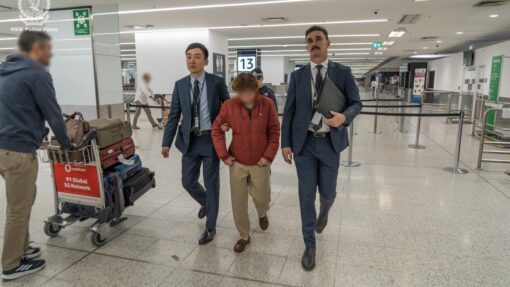Brickies missing millions? Cbus Super recovers record amount for hardest hit industry

If you are a labourer, you could be missing thousands of dollars in unpaid super, according to new research. Labourers are more affected by unpaid superannuation than any other profession, with 41% of workers reporting missing contributions. Construction worker superannuation fund Cbus Super announced the recovery of a record $200 million in unpaid superannuation for their members for the 2024 financial year.
It comes as Cbus is advocating for the introduction of ‘pay day super’, where superannuation payments are made at the same time as wages are paid, as the best way to maintain consistent retirement savings for workers. The total amount of missing contributions they found for members and were able to recover now totals over $600 million over the last five years for more than 665,000 of their members.
The research, by the Super Members Council, showed other heavily impacted groups include machinery operators and drivers at 36% of workers missing contributions, and technicians and trade workers at 31%.
The long-term benefits of recovering superannuation funds is particularly significant given the compounding effect of lost super. While contributions may initially be small, this money is invested and compounds over time, which can make a significant difference to workers’ retirement nest egg. Additional money recovered early in a worker’s career can later markedly improve the quality of retirement for workers who have put in years of hard labour.
Marianne Walker, Cbus Deputy CEO, stressed the importance of the fund recovering unpaid super for labourers, stating that “recovery of the $200 million in unpaid super this past financial year, a legal entitlement for workers, is an example of the significant impact across the country on retirement savings,” Walker stated. She noted that Cbus’s approach, including face-to-face workplace interactions, has been crucial in these recoveries.
Walker stated that only a minority of employers attempt to bypass these responsibilities, gaining an unfair advantage. The move to pay day super is seen as a solution to help employers manage payroll and avoid accruing large liabilities over a quarter, which may be difficult to address.
Unpaid superannuation is particularly problematic in the construction industry due to the high rate of insolvencies, leaving many workers without their entitled benefits. Walker highlighted the urgency of addressing this issue as unpaid super can also jeopardise critical insurance cover for members in hazardous jobs.
“Insurance cover through superannuation lapses after 16 months of non-payment. Too often our workplace coordinators are meeting with members who have lapsed insurance following a period of unpaid super. Unpaid super puts at risk this critical insurance cover for members working with heavy machinery and at heights,” Walker said.
Cbus Super is also advocating for further measures to protect workers’ retirement savings, including expanding the Fair Entitlements Guarantee (FEG) safety net to cover superannuation and supporting the Australian Tax Office (ATO) in adopting a stricter, more proactive stance on investigating and penalising unpaid superannuation cases.



